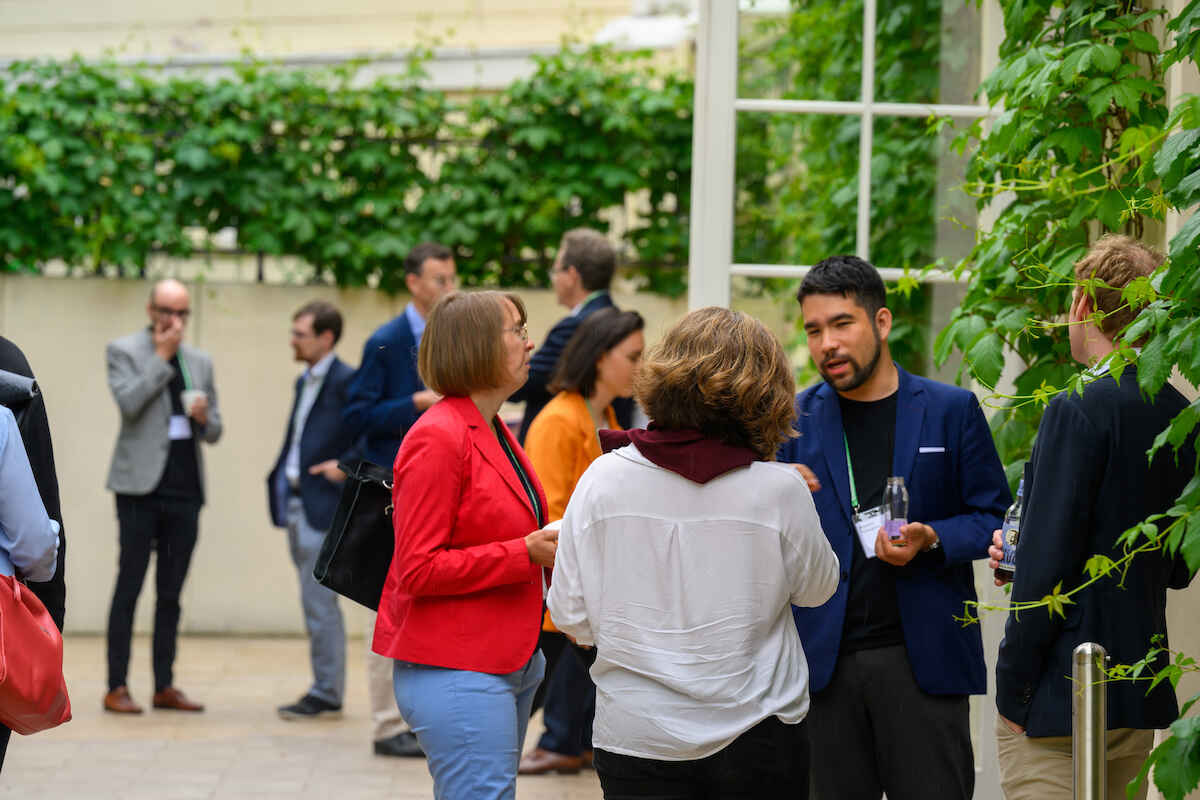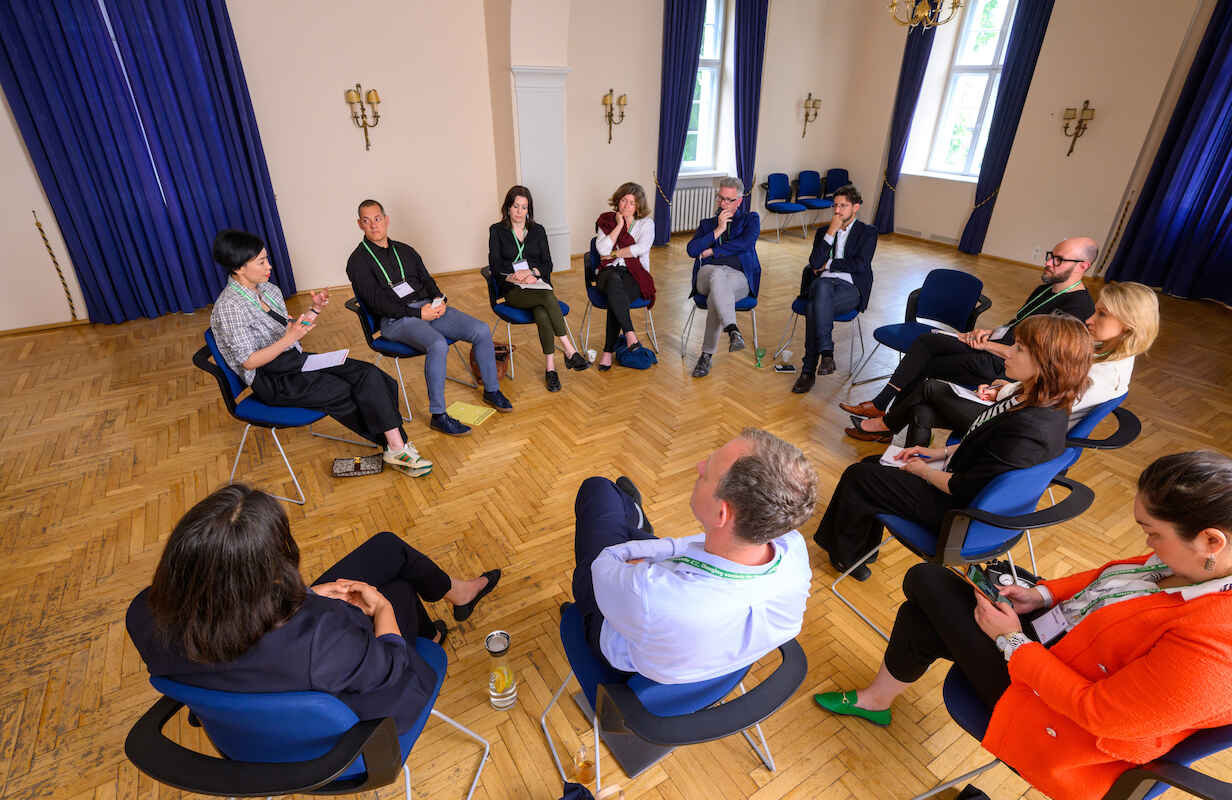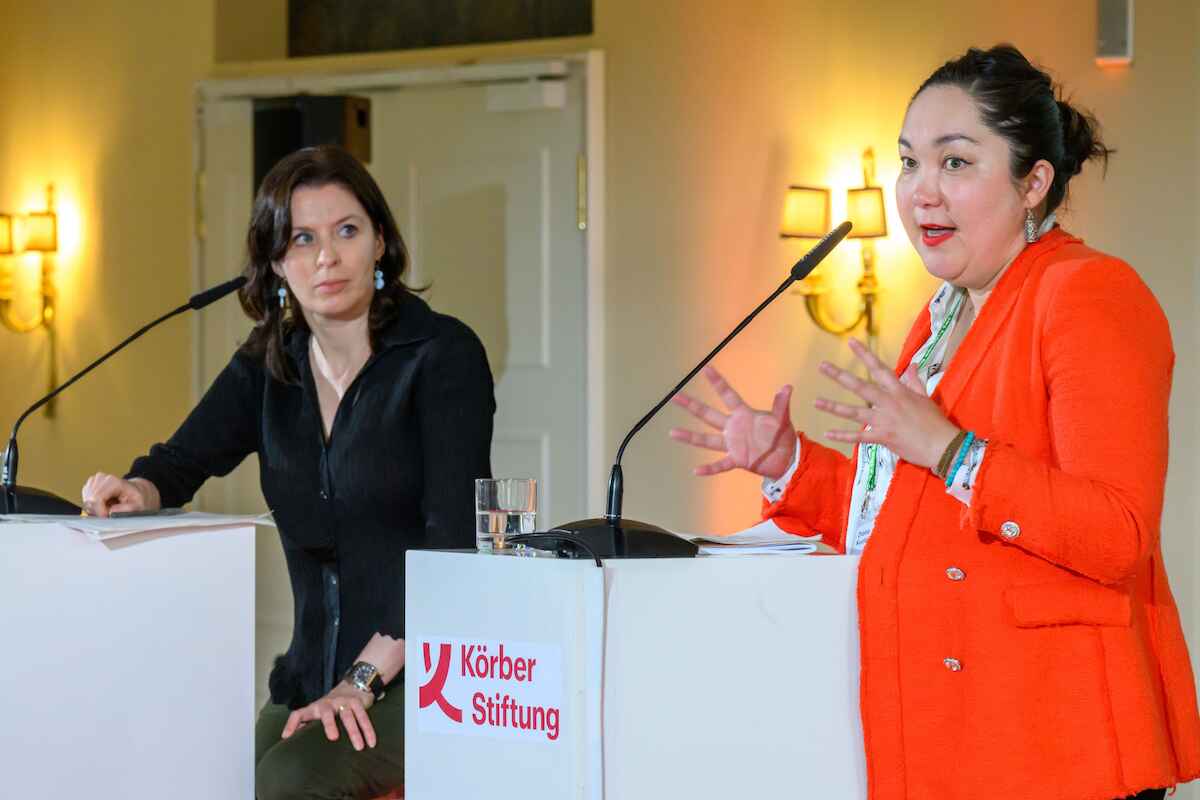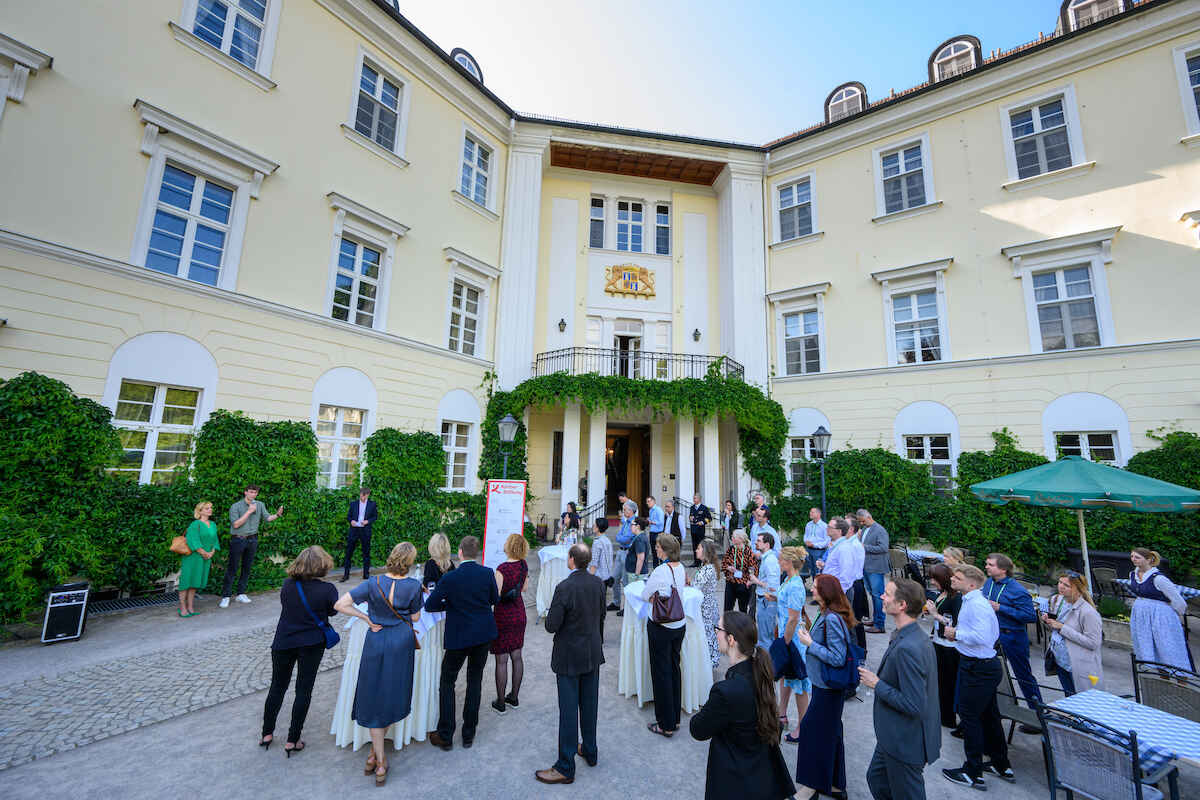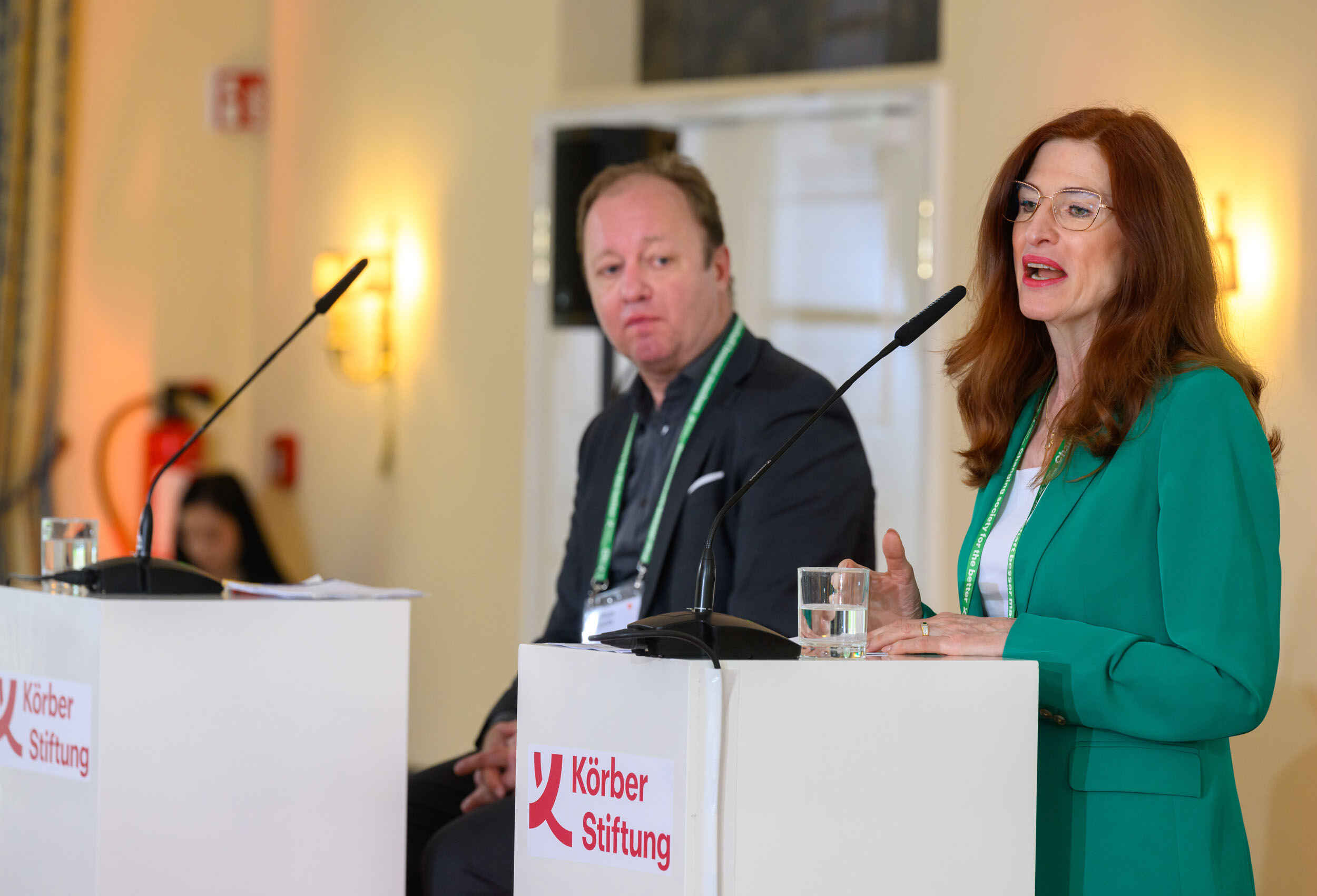
Photo: David Ausserhofer
Körber History Forum Retreat 2023
Shifting International Order
Historical Sensibility for Uncertain Times
The Körber History Forum Retreat took place from June 5th to 6th, 2023, at Lübbenau Castle (near Berlin). For two days, the Retreat provided a space for debates with selected experts on our present historical and geopolitical challenges.
During last year’s Retreat there was widespread agreement that Russia’s war against Ukraine marked the end of the post-Cold War era. However, the magnitude of the shifts in our understanding of power and order was not yet apparent. And questions remained: How to re-examine the post-1989 era? And what term will replace the outdated “post-Cold War era”?
These questions were addressed and expanded upon at the 2023 Retreat. Given the emerging post-Western order and the ongoing war in Ukraine, taking a historical perspective on geopolitics and strategy is key: What are the implications of a struggle for a new international order for politics and society? How do narratives of the past shape our understanding of order today? How to achieve a lasting peace order? What leads powers to shift strategies? To what extent can trade promote peace? These and other questions were at the center of discussions at the Körber History Forum Retreat 2023.
Historian Adam Tooze opened the Retreat by discussing the concept of “change through trade” and analyzing whether international trade has strengthened or weakened relations between states and global actors throughout history.
Similar to the previous year in 2022, the History & Politics Roundtable was at the heart of the program, enabling intense interaction among all participants. In the first roundtable, historians Stella Ghervas and Patrick O. Cohrs, security expert Margarita Šešelgytė, and curator Vasyl Cherepanyn, under the guidance of Jan Claas Behrends, sparked the debates with brief inputs.
Against the backdrop of Russia’s war against Ukraine, the 19th and 20th centuries wars in Europe, and the security situations in the Baltic states after the end of the Cold War, the following questions were discussed: How to achieve a lasting post-war peace order? What makes peace settlements endure? Has there been a particular European procedure for ending a war and achieving peace settlements that have domestic and international legitimacy? How to deal with reconciliation in the context of peace arrangements? How can a balance be struck between responsibility and guilt as well as between freedom and security? What are the different roles of international organizations in mediation, peacekeeping, and post-conflict peacebuilding interventions?
Geopolitics and grand strategy were the focus of our four deep dive sessions. Historians Katja Hoyer and Brendan Simms spoke with Oliver Moody about Germany’s global strategy. Political scientist Asel Doolotkeldieva provided perspectives from various Central Asian countries on the great power rivalries since the end of the Cold War. In a conversation with Mirko Kruppa and the participants, she discussed, among other things, the strategic narratives that great powers employ to gain and maintain influence in their border regions and how civil society defends itself.
Historian Kristina Spohr discussed the new era of international cooperation in the Arctic. In a conversation with military expert Maria Mälksoo, they talked about the long-running competition over the polar region, from the age of imperial expansion to the era of ideological struggle and nuclear face-off. Historians Mary Elise Sarotte and Mart Kuldkepp discussed the late era of the Cold War and the post-Wall period: How to find a suitable term for our current era of reordering?
The second History & Politics Roundtable on “Strategies for a Changing Global Order,” chaired by Natalie Nougayrède and Elisabeth Braw, concluded the Körber History Forum Retreat. Historian Ramachandra Guha provided insights into the narratives of the past that shape India’s understanding of order today. How is the international peace and security order since 1945 perceived in the global South or East? Historian Francis J. Gavin examined the intensive interaction between history and grand strategy: How does historical thinking help analyze or implement a state’s overall strategies? And what obstacles exist in the dialogue between historians and experts from politics and diplomacy?
Social scientist Diana T. Kudaibergen reported on the transformation experiences in the civil societies of Central Asian countries following the collapse of the Soviet Union in 1991. Security expert and diplomat Dominik P. Jankowski discussed how NATO adapts to the end of the post-Cold War era and how the war against Ukraine is changing Europe and NATO.
With the retreat and the overall program of the Körber History Forum, Körber-Stiftung aims to provide additional insights for political decision-making by incorporating historical contexts. In the face of the changing international order and the ongoing Russian aggression in Ukraine, a historical perspective on geopolitics and strategy is of central importance.
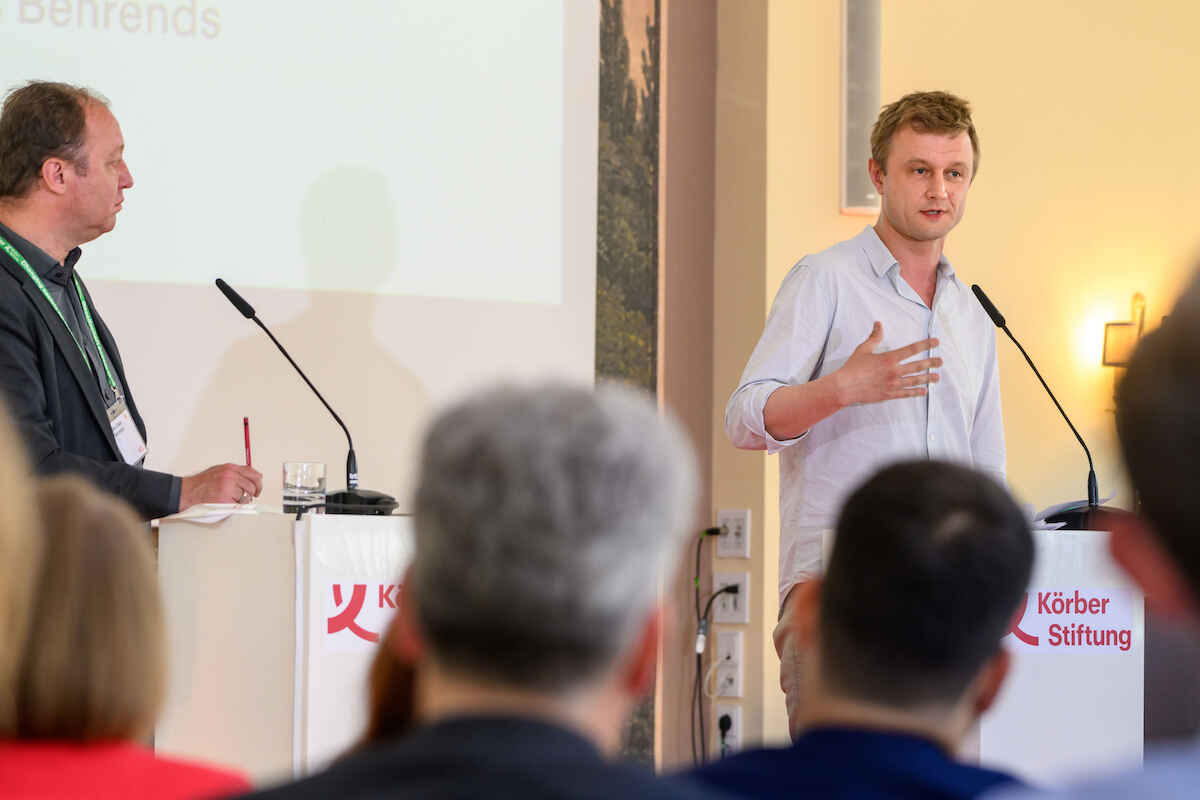
all photos: David Ausserhofer 